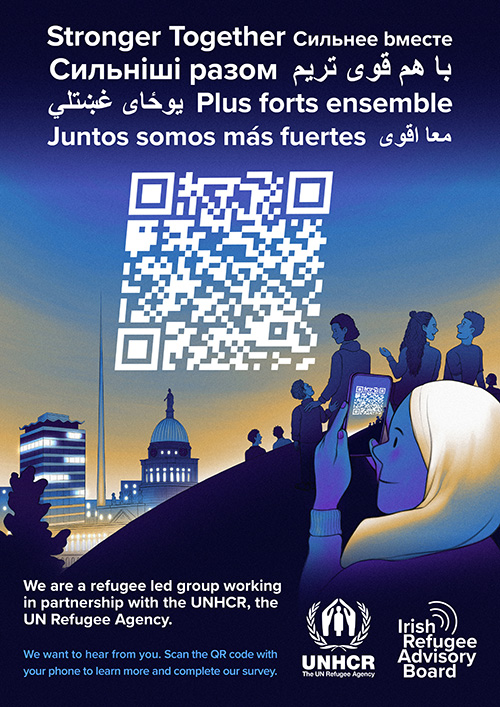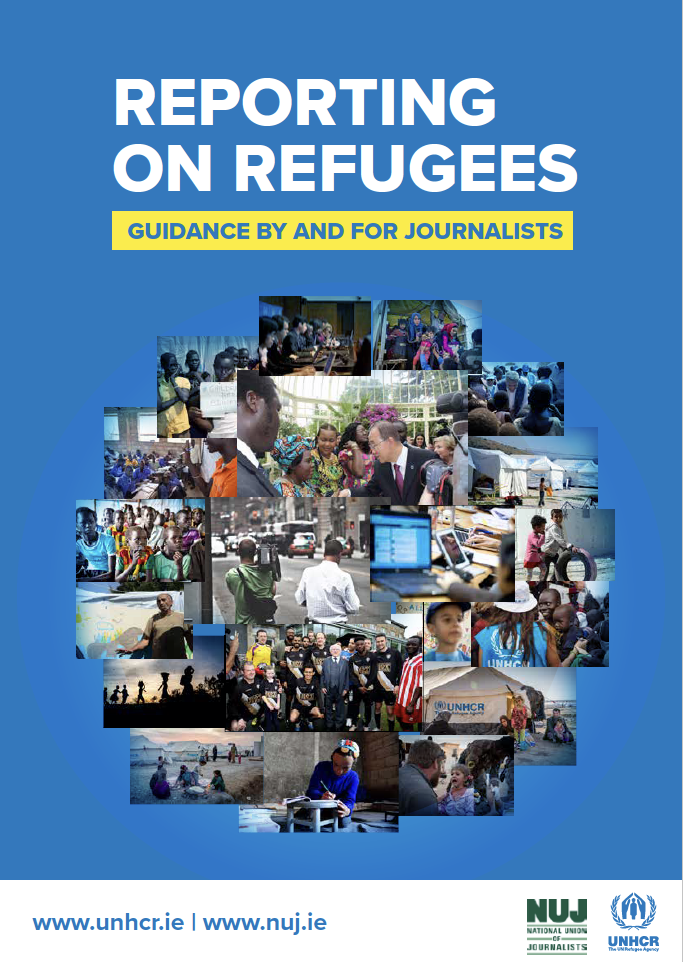UNHCR Global Appeal 1999 - Regional Overview: Western Europe
UNHCR Global Appeal 1999 - Regional Overview: Western Europe
UNHCR's presence in Western Europe dates from the period shortly after the Office was established under its 1950 Statute. Not only was it important to be present in these countries to assist with the refugee populations at the time, but it was also crucial for UNHCR to liaise closely with the States that were the first signatories to the 1951 Convention to oversee its successful implementation. During the crisis in Hungary in the mid-1950s, UNHCR was also called upon to establish its first material assistance programme. Given Western Europe's importance as a region of asylum - more than 3.7 million applications for asylum were filed in European Union (EU) countries alone between 1988 and 1997 - UNHCR's presence in Western Europe is vital.
UNHCR's main activities in Western Europe are in the field of protection and legal assistance. Activities vary from country to country but, in general, UNHCR's work includes assisting Governments in drafting refugee-related legislation and establishing related procedures, where appropriate; participating in refugee status determination in accordance with national legislation; providing refugee law training to government authorities and other partners such as NGOs, judges, lawyers and peace-keeping forces; supporting organizations which offer legal and social counselling to individual asylum-seekers and refugees; and conducting public information and awareness campaigns. In a few countries, UNHCR also provides direct assistance to those of concern to the Office, albeit on a small scale. The Office acknowledges the problems faced by many Western European countries in returning persons not in need of international protection and has published a policy position paper outlining the extent and limit of the organization's involvement in this issue.
Strengthening national structures
In countries such as Cyprus, Estonia, Latvia, Lithuania, Greece and Ireland, which are in the process of developing asylum systems, UNHCR ensures domestic legislation is enacted to fulfil States' obligations under international law; effective national procedures are in place to implement the law; appropriate training is given to government officials working in this field; and limited support is given to local NGOs involved in providing legal or social assistance to asylum-seekers and refugees, pending the establishment of suitable national structures. This assistance includes providing reception facilities for asylum-seekers and support for the first phase of integration of newly recognized refugees.
In countries which already have fully functioning status determination procedures and strong NGO participation in refugee affairs, UNHCR focuses on advocacy, public awareness, training and network-building. In these countries, UNHCR pursues a policy of "national responsibility" with the aim of reducing the amount of financial and other resources UNHCR devotes to legal and social counselling, repatriation and family reunification projects, and individual household support. The basis of this policy is the conviction that such activities are the ultimate responsibility of the States parties to the 1951 Convention.
Resettlement is another important aspect of UNHCR's work in Europe. A number of Western European countries have established annual refugee resettlement quotas, accepting refugees at risk in their first country of asylum. UNHCR identifies suitable cases for resettlement and works to increase the number of European countries with resettlement quotas.
Harmonizing laws and approaches
UNHCR is working closely with the European Union institutions contributing to initiatives to harmonize asylum laws, within the framework of the Treaty on European Union, and other initiatives related to the protection of refugees and asylum-seekers among member states. In addition to putting forward UNHCR's views on various harmonization initiatives, such as the temporary protection and burden-sharing proposals, and advising on particular approaches such as the Action Plan on the Influx from Iraq, UNHCR has also embarked on an ambitious public awareness campaign linked to the integration of refugees in European Union Member States. Through the establishment of a Liaison Office in Strasbourg, UNHCR has also strengthened its cooperation with the Council of Europe.
As part of its role under the 1995 Dayton Peace Agreement, UNHCR has been monitoring returns to the former Yugoslavia and negotiating with host countries on the best way to achieve lasting and effective reintegration of returnees.
Protecting women and children
Given the growing number of unaccompanied minors in need of international protection in Europe, UNHCR and the Save The Children Alliance have designed a project to "realize the rights of separated children in Europe." The objective is to ensure that all unaccompanied children and adolescents in need of international protection receive it. The project promotes the development of policies and regulations that are consistent throughout the region, seeks to ensure inclusion of the "best interests of the child" rule in government programmes and policies, and promotes awareness of the developmental needs of this group. Problems confronting female asylum-seekers and refugees are also of concern to UNHCR in Western Europe. In a number of countries, the local UNHCR office has been encouraging gender sensitivity in status determination procedures by, for example, drafting guidelines to help determine claims by female asylum-seekers. Women who have been victims of sexual assault may find it difficult to discuss their experiences, especially with a male interviewer or in front of a male interpreter. The guidelines, therefore, recommend that women eligibility officers and interpreters be available.
In June 1998, the Regional Office in Brussels organized a European conference on substantive and procedural issues related to female asylum-seekers.
UNHCR's activities in Western Europe are primarily conducted under the General Programme.
Budget US$
The budget does not include costs at Headquarters.
| Country | General Programmes | Special Programmes | Total |
| The Baltic Countries | 959,000 | 959,000 | |
| Belgium | 1,807,800 | 1,807,800 | |
| Cyprus | 246,800 | 21,642 | 268,442 |
| France | 1,784,900 | 557,801 | 2,342,701 |
| Germany | 2,150,700 | 2,150,700 | |
| Greece | 1,393,100 | 1,393,100 | |
| Ireland | 130,700 | 114,261 | 244,961 |
| Italy | 1,369,600 | 765,506 | 2,135,106 |
| Malta | 199,600 | 199,600 | |
| The Netherlands | 217,400 | 217,400 | |
| The Nordic Countries | 1,082,700 | 1,082,700 | |
| Portugal | 192,200 | 192,200 | |
| Spain | 867,100 | 236,800 | 1,103,900 |
| Switzerland | 796,600 | 90,932 | 887,532 |
| United Kingdom | 1,628,300 | 130,000 | 1,758,300 |
| TOTAL | 14,826,500 | 1,916,942 | 16,743,442 |




